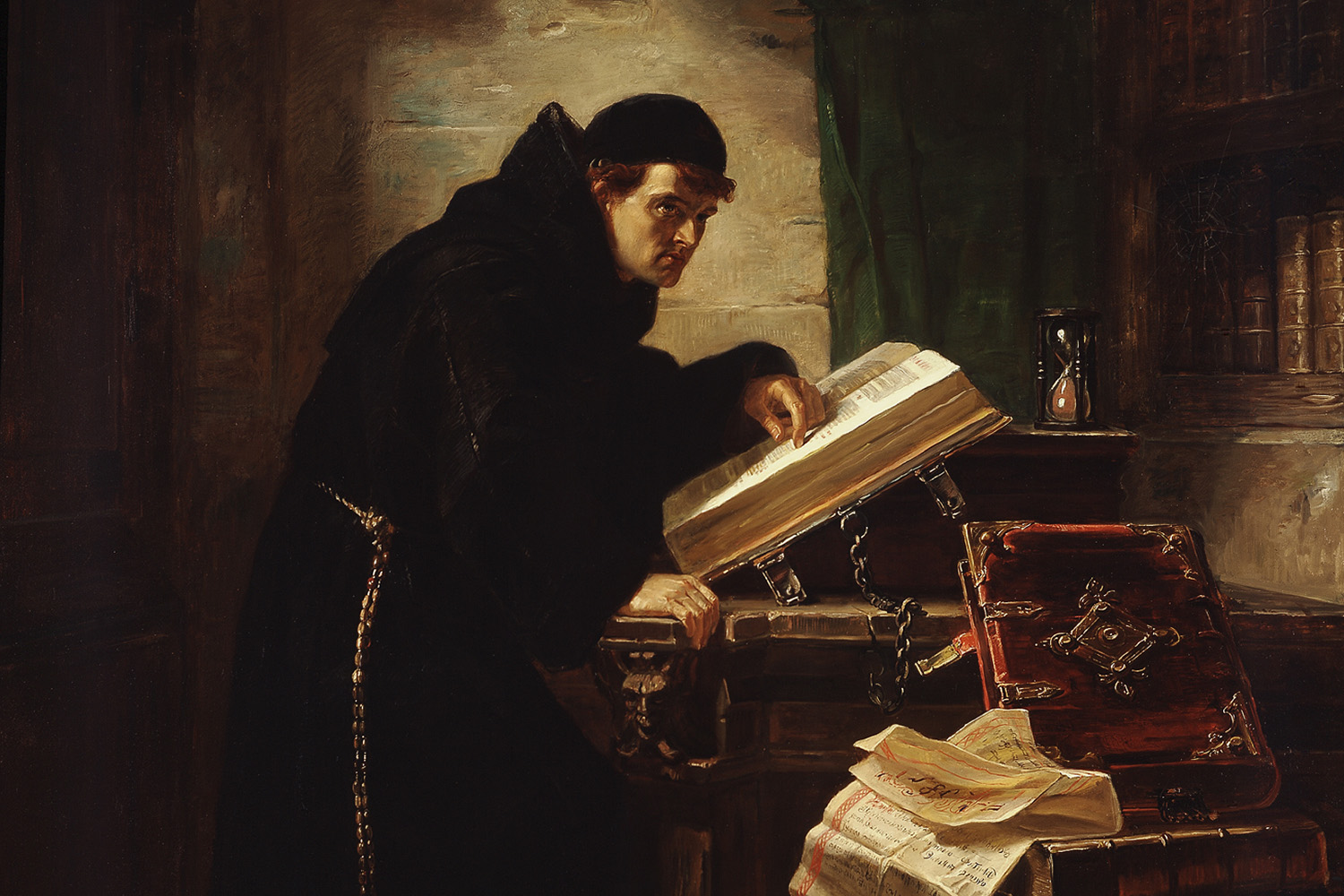God is the Creator who built all reality—space, time, energy, matter, and life. His laws are the laws that reality is constructed to operate upon; the laws of gravity, physics, thermodynamics, health, and the moral laws. These are fixed principles upon which life is constructed to exist.
Created beings cannot create reality, so we make up rules, call them “laws,” and then inflict punishment when our rules are broken. Christianity replaced the New Testament principle of love and design law, with a human, imposed law construct—the distortion that God’s law functions no differently than that of human law, imposed rules requiring infliction of punishment.. This led to all types of abuses and the world went into an age of darkness.
Because imperial/imposed-law requires punishment for wrongdoing, the church of the Dark Ages taught that sin must be punished. This led to the doctrine of purgatory, where after death, conscious souls have their sins purged through punishment. In Roman Catholic theology, entrance into heaven requires the “remission before God of the temporal punishment due to sins whose guilt has already been forgiven,” for which indulgences may be given which remove “either part or all of the temporal punishment due to sin,” such as an “unhealthy attachment” to sin.[1] Those who die in grace, but who have not yet fulfilled the temporal punishment, due to their sin, can do so in purgatory.
One of the major doctrines that the great reformer Martin Luther rejected was the teaching that conscious souls are punished in purgatory. He disagreed with this doctrine in two ways:
- First, he did not believe in a conscious soul that could experience punishment, and instead taught that the saints sleep peacefully: “It is enough for us to know that souls do not leave their bodies to be threatened by the torments and punishments of hell, but enter a prepared bedchamber in which they sleep in peace.”[2]
- Second, Luther put forth a new theory designed to free people from both the fear of purgatory and the exploitation of indulgences to buy loved ones their freedom from further punishment in purgatory. He expanded Anselm’s satisfaction theory of atonement by adding inflicted punishment. Luther taught the idea that all sin by all humans from all time were placed on Christ at the cross and punished by God at the cross. Thus, for the saints, there were no unpunished sins remaining to be punished, thus there was no need for purgatory.[3]
Unfortunately, the same root lie underpins both purgatory and Luther’s solution—that God’s law functions like human law and that breaking the law (an act of sin) requires punishment. This is Satan’s lie about God’s law from the beginning.
E.G. White, one of the founders of the SDA church, describing Satan’s opening lies, writes:
In the opening of the great controversy, Satan had declared that the law of God could not be obeyed, that justice was inconsistent with mercy, and that, should the law be broken, it would be impossible for the sinner to be pardoned. Every sin must meet its punishment, urged Satan; and if God should remit the punishment of sin, He would not be a God of truth and justice. (DA 761.4, emphasis supplied)
The completion of the Reformation requires the rejection of this imposed law lie, in order to take the eternal gospel to the world, to prepare the world for Christ’s return. We must return to worship our Creator and Designer and realize His laws are the protocols upon which life is built. We must realize that sin changes the sinner, causing a state of being which is incompatible with life in God’s universe, because the sinner is no longer operating upon the law (protocols) that God constructed life to exist. Thus God, through Christ, has been working to heal and restore sinners back into perfection. This is healing substitution theology, “God made him who had no sin to be sin for us, so that in him we might become the righteousness of God” (2Cor 5:21). This is the message of the three angels of Revelation 14. This is the true mission of the church—one that we will only fulfill when we eliminate imposed law, with its penal substitutionary distortion, from our pulpits, books, doctrines, universities, and institutions.
[1] Catechism of the Catholic Church, “The celebration of the Christian Mystery.” The Holy See. The Catholic Church. Retrieved 14 March 2017.
[2] Weimarer Ausgabe, 43, 360, 21–23 (to Genesis 25:7–10); also Exegetica opera latina, Vol 5–6 1833 p. 120 and the English translation: Luther’s Works, American Edition, 55 vols. (St. Louis: CPH), 4:313.
[3] Paul Althaus, Die Theologie Martin Luthers, 7th ed. (1994), 179, 191-195.











 using your credit or debit card (no PayPal account needed, unless you want to set up a monthly, recurring payment).
using your credit or debit card (no PayPal account needed, unless you want to set up a monthly, recurring payment). instead?
instead?